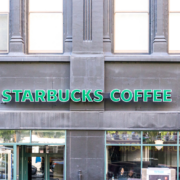October 16, 2024
Media contact: Rachael Klarman, Executive Director, rachael.klarman@governingforimpact.org
WASHINGTON, DC — Today, Governing for Impact (GFI), the Economic Policy Institute (EPI), and the Child Labor Coalition (CLC) released a set of executive action proposals the Biden-Harris administration can take to address the alarming rise in child labor violations and workplace injuries in the United States. The proposals, which are grounded in the Department of Labor’s (DOL) existing authority, include preventing children from working in hazardous occupations like milling operations, prohibiting children from handling toxic chemicals, and banning overnight shifts for kids.
The executive action proposals aim to fill a pressing gap in child labor enforcement. Since 2021, more than thirty states have taken steps to weaken child labor laws, including in Arkansas, Iowa, New Jersey, and Michigan. Extreme, industry-aligned groups like those behind Project 2025 have also proposed weakening federal regulations to let more young people work dangerous jobs, claiming that “young adults show an interest in inherently dangerous jobs.”
“Many assume that child labor is a thing of the past, and that there must already be a robust regulatory system in place to ensure that children are safe,” said Reed Shaw, Policy Counsel at GFI. “But the fact is, more and more children are getting injured every year due to unsafe working conditions. As we show in our analysis, the Department of Labor has the authority to fill the gap.”
Nearly a century has passed since Congress enacted the Fair Labor Standards Act (FLSA), which introduced critical protections for child workers in America. Despite this, too many children are still exploited. Injury rates for workers under 18 almost doubled between 2011 and 2020, particularly in agriculture where the risks are highest and the regulations are the weakest.
“At a time when child labor violations are on the rise and many states are simultaneously attempting to weaken child labor laws, there is an urgent need for the U.S. Department of Labor to use its authority to raise federal minimum standards to protect all children who work—no matter what state they live in,” said Nina Mast, Policy and Economic Analyst on EPI’s State Policy and Research team.
“This release of executive action proposals stands as a call-to-action that more must be done to protect children from occupational dangers,” said Reid Maki, director of child labor advocacy for the National Consumers League and coordinator of the CLC. “Recently, we’ve witnessed wildly expanding hazardous child labor in the U.S. with kids working in meat-packing plants and auto-supply factories. Many of them work throughout the night in grave-yard shifts that leave them with no time to sleep before they attend school completely exhausted. We can and must do more to protect our children.”
To develop regulatory recommendations for the Biden-Harris administration, GFI, EPI, and CLC reviewed the DOL’s existing legal authority and identified steps to better protect child workers. Findings and recommended actions were sent to DOL and outlined in a new report, Protecting Children from Dangerous Work. The executive action proposals include:
- Making nonagricultural occupations safer: Expanding the list of nonagricultural occupations deemed too hazardous for workers under 18, such as jobs in security services and milling operations.
- Making agricultural occupations safer: Increasing protections for child agricultural workers under 16, including prohibiting children from handling toxic chemicals or operating dangerous machinery.
- Regulating working hours: Implementing restrictions on working hours, including a ban on overnight shifts for minors and mandatory rest breaks.
Young workers are being harmed every day. This report urges the Biden administration and the DOL to immediately update and enforce regulations and protect children from harm.
###
About Governing for Impact
Governing for Impact (GFI) is a regulatory policy organization dedicated to ensuring the federal government works for working Americans, not corporate lobbyists. The policies we design and the legal insights we develop help increase opportunity for those not historically represented in regulatory policy implementation work: working people. For additional information about GFI, please visit https://governingforimpact.org/.
About Economic Policy Institute
The Economic Policy Institute (EPI) is a nonprofit, nonpartisan think tank working for the last 30 years to counter rising inequality, low wages and weak benefits for working people, slower economic growth, unacceptable employment conditions, and a widening racial wage gap. For additional information about EPI, please visit https://www.epi.org/.
About the National Consumers League (NCL)
The National Consumers League, founded in 1899, is America’s pioneer consumer organization. Our mission is to protect and promote social and economic justice for consumers and workers in the United States and abroad. For more information, visit www.nclnet.org.
About the Child Labor Coalition
The Child Labor Coalition (CLC) is chaired and coordinated by the National Consumers League and strives to reduce exploitative child labor in the United States and abroad, bringing together over 35 groups to create a powerful voice that promotes public education, research, and advocacy to reduce the most harmful forms of child labor, as well as end child slavery, child trafficking, and child marriage. For additional information about CLC, please visit https://stopchildlabor.org/.

























